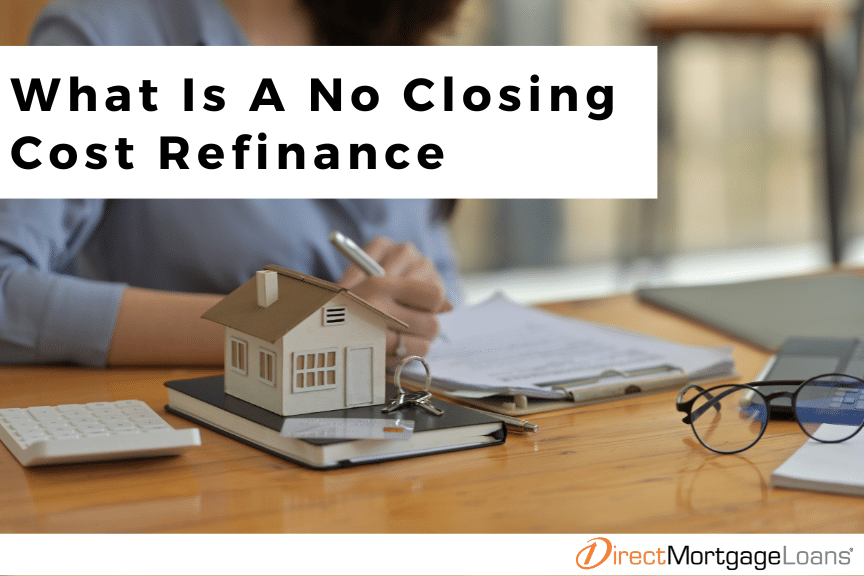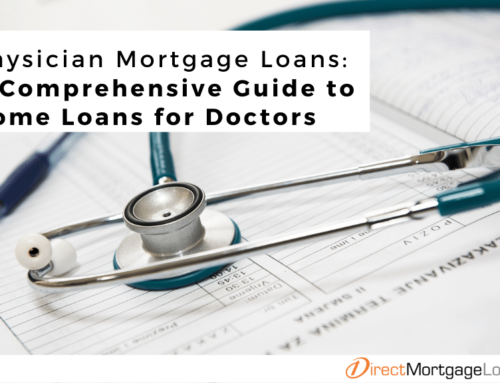When you take out a loan to purchase a house or refinance an existing mortgage, you might be surprised to realize that closing costs can add up to 3% to 6% of the total loan amount. As a result, some homeowners may put off refinancing due to the high cost of closing fees. However, there is an alternative option called a no closing cost refinance. This option could allow you to include your closing costs into either your principal or interest rate to avoid paying upfront closing costs. To learn more about a no closing cost refinance, contact a loan officer today!
Subscribe to our blog to receive notifications of posts that interest you!
What is a no closing cost refinance?
A no-closing-cost refinance is a type of mortgage refinancing that allows you to avoid paying upfront fees when closing on your loan. It’s important to understand that these closing costs will still be included in your loan in other ways. For example, the closing costs could be added to what you owe on your new mortgage (the principal amount). You could also choose a higher interest rate instead of paying the closing costs upfront.
What are lender fees when refinancing?
A lender fee is a charge that lenders impose on borrowers for processing their loan application and setting up a new loan. It is the compensation the lender receives for their services.
How To Refinance a Mortgage with No Closing Cost
To refinance your mortgage without paying closing costs upfront, you can either roll the costs into your principal or agree to a slightly higher interest rate.
Adding The Closing Costs to Your Principal
If your lender adds the closing costs to your principal amount, you will not need to pay any upfront closing costs on closing day. Instead, the unpaid balance of your loan will be higher with the addition of the closing cost amount. This will increase your monthly mortgage payments but will not affect your interest rate.
Adding The Closing Costs to Your Interest Rate
Another option to a no closing cost refinance would be to increase your interest rate in exchange for waiving an upfront cost. On a mortgage loan, the interest rate is the amount paid to your lender (it is reflected in your total monthly mortgage payment) for borrowing. A higher interest rate will raise your monthly mortgage payment but will not affect your principal amount.
If you are considering a refinance for your home, read this client case study.
How much does it cost to refinance a mortgage?
If you are considering refinancing your mortgage, keep in mind that there are usually fees associated with it. These fees can vary depending on your lender, the value of your home, and the type of refinance you choose. Typically, these expenses range from 3% to 6% of the property’s purchase price.
If you’re eligible for a no closing cost refinance and decide to roll the costs into the loan amount, there will be no upfront closing costs due. However, these costs will be added to your loan amount. For instance, if your closing costs add up to $4,500 and you choose to roll them into a $300,000 loan, the new loan amount will be $304,500.
Common Refinancing Closing Cost
When you refinance your mortgage, you will need to pay closing costs on the day of closing. These costs include various fees and charges, which you may need to pay upfront. Some common closing costs for a mortgage refinance may include:
- Loan Origination Fee: This fee, which is typically around 1% of your loan’s total value, covers the costs of processing and underwriting your loan.
- Appraisal Fee: This fee covers the cost of having a professional appraiser assess the fair market value of the property.
- Title Fees: These fees cover the cost of verifying the property’s title by researching its history and area.
- VA Funding Fee: When refinancing a VA loan, you could have to pay a funding fee to the Department of Veterans Affairs (VA). The amount you pay depends on the type of refinance, equity, and whether it’s your first time using a VA loan.
- Mortgage Insurance: Depending on your refinanced loan type, you may need to pay a mortgage insurance premium (MIP) or private mortgage insurance (PMI).
Note: In some instances, closing cost fees for a refinance can be wrapped into the total loan amount so no money is due out of pocket.
What are the advantages of a no closing cost mortgage refinance?
One of the main advantages of a no closing cost refinance is the ability to avoid paying any closing costs upfront. This could allow you to redirect the funds you would have spent on closing costs towards other purposes or expenses. While these types of refinances can be more costly in the long run, especially due to potentially higher interest rates or larger principal balances, they may offer savings if you’re planning to move in a few years, as you won’t bear the full brunt of these additional costs over an extended period.
Who should consider a no closing cost refinance?
If you are unable to cover the upfront closing costs, a no closing cost refinance could be a good option for you. This will help you avoid the initial financial hurdle, especially if you have had unexpected expenses or limited savings. Additionally, if you intend to sell your home within the next 2-5 years, it may be worth considering a no closing cost refinance with a slightly higher interest rate. This is because you won’t carry the loan for long, and as a result, you’ll pay less in interest overall.
*By refinancing your existing loan, total finance charges may be higher over the life of your loan. Rate savings are subject to market changes.
How can I determine if I am eligible for a no closing cost refinance?
To determine if you are eligible for a no closing cost refinance, there are several factors that need to be considered. These include your credit score and history, your loan-to-value (LTV) ratio, and the amount you want to borrow. It is important to note that the requirements may vary depending on the lender and the loan type. It is recommended that you speak with a loan officer to discuss your personal situation and check if you are eligible.
No Closing Cost Refinancing FAQ’s
Can I refinance my mortgage multiple times with no closing cost option?
When it comes to a no closing cost refinance there’s no legal limit to how often you can refinance. However, it’s important to consider the financial implications. While multiple refinances may be possible, if you meet the eligibility criteria. Frequent refinancing can become costly and may not be worthwhile in the long run.
How long does the process take for a no closing cost refinance??
Usually, the refinancing process takes between 15 to 45 days but will depend on your lender and individual needs. DML could move through a refinance quickly, especially if there is an appraisal waiver. Some steps take longer than others during the refinancing process, and this can affect the overall timeline. The longest state of the refinancing process is typically obtaining documents from third parties and the appraisal.
Who offers a no closing cost mortgage refinance?
Direct Mortgage Loans offers a no closing cost refinancing option to eligible borrowers. You can start your application today and speak to one of our expert loan officers to learn more about this option.






Leave A Comment
You must be logged in to post a comment.